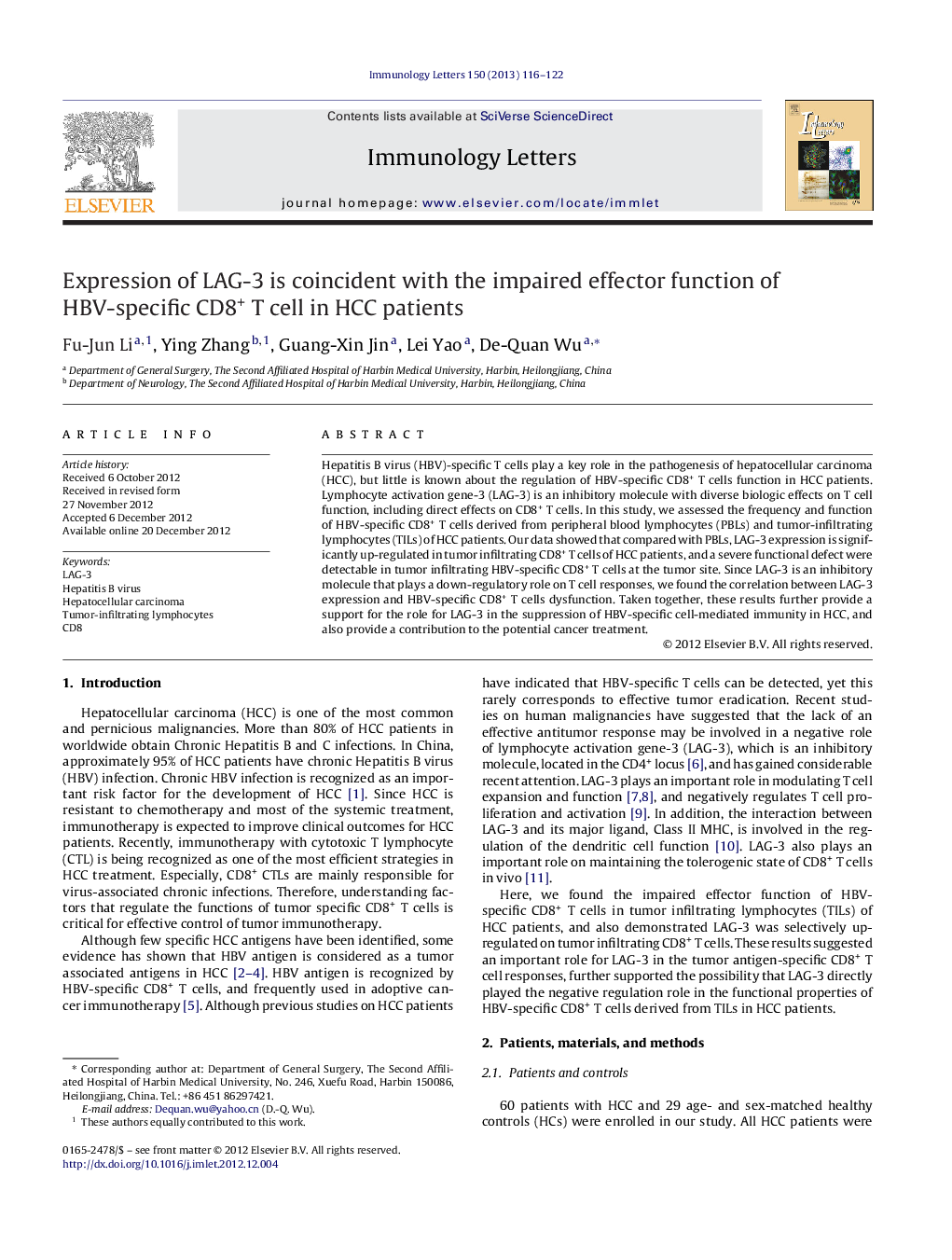| Article ID | Journal | Published Year | Pages | File Type |
|---|---|---|---|---|
| 3355557 | Immunology Letters | 2013 | 7 Pages |
Hepatitis B virus (HBV)-specific T cells play a key role in the pathogenesis of hepatocellular carcinoma (HCC), but little is known about the regulation of HBV-specific CD8+ T cells function in HCC patients. Lymphocyte activation gene-3 (LAG-3) is an inhibitory molecule with diverse biologic effects on T cell function, including direct effects on CD8+ T cells. In this study, we assessed the frequency and function of HBV-specific CD8+ T cells derived from peripheral blood lymphocytes (PBLs) and tumor-infiltrating lymphocytes (TILs) of HCC patients. Our data showed that compared with PBLs, LAG-3 expression is significantly up-regulated in tumor infiltrating CD8+ T cells of HCC patients, and a severe functional defect were detectable in tumor infiltrating HBV-specific CD8+ T cells at the tumor site. Since LAG-3 is an inhibitory molecule that plays a down-regulatory role on T cell responses, we found the correlation between LAG-3 expression and HBV-specific CD8+ T cells dysfunction. Taken together, these results further provide a support for the role for LAG-3 in the suppression of HBV-specific cell-mediated immunity in HCC, and also provide a contribution to the potential cancer treatment.
► LAG-3 is an inhibitory molecule with diverse biologic effects on T cell function. ► LAG-3 expression is significantly up-regulated in tumor infiltrating CD8+ T cells of HCC patients. ► A severe functional defect was detectable in tumor infiltrating HBV-specific CD8+ T cells at the tumor site. ► LAG-3 may play a role in the suppression of HBV-specific T cell-mediated immunity in HCC.
